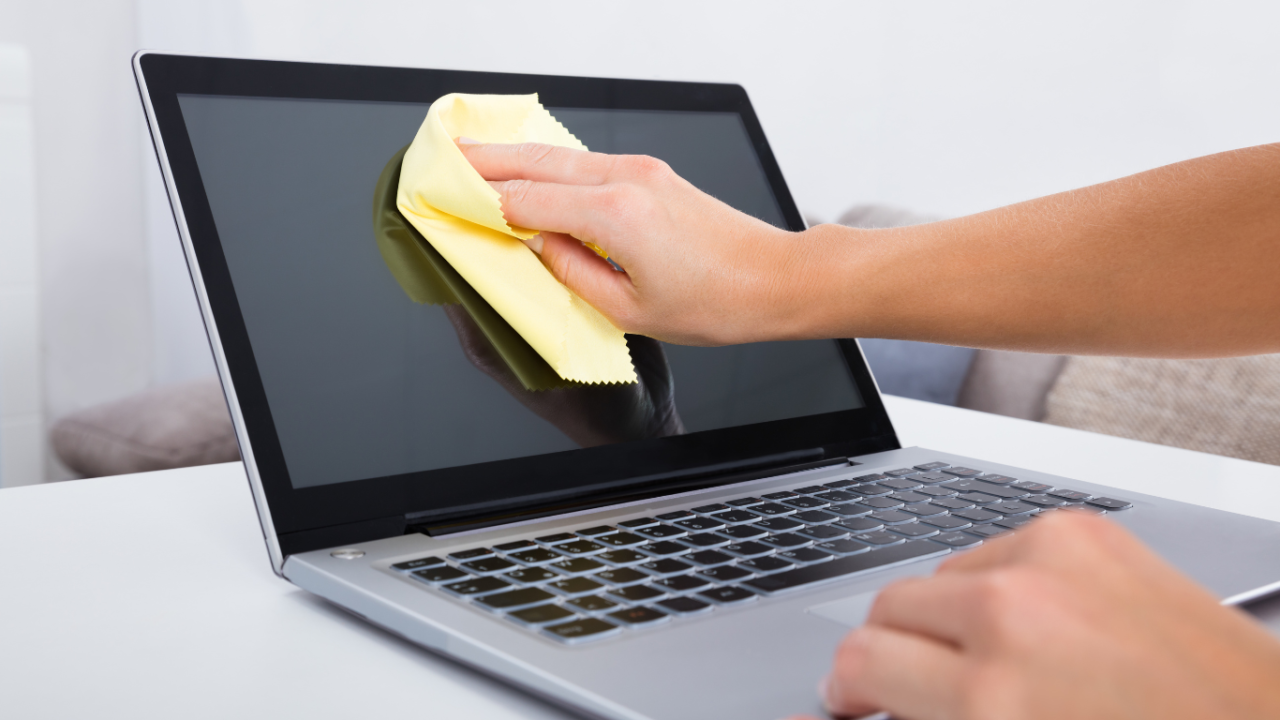
Welcome to the ultimate guide on mastering the art of computer screen cleaning! In today’s fast-paced digital world, a clean and clear screen is not just a preference; it’s a necessity, especially for students who spend hours staring at their screens. Whether you’re preparing for an online class, a gaming session, or just binge-watching your favorite series, a pristine screen can make all the difference. Let’s dive into the world of screen cleaning with essential tips and techniques that promise clarity, hygiene, and optimal screen performance.
Glass-coated computer screens are known for their glossy finish and are often found in high-end laptops and monitors. They require a specific approach to cleaning to avoid scratches and damage.
Non-glass-coated screens, typically with a matte finish, are more common and require a different cleaning method. Identifying your screen type is the first step to effective cleaning.
Microfiber Cloth: Essential for gently wiping the screen without scratching it. Use a separate cloth for drying to avoid streaks.
Soft Brush: A soft-bristled brush is perfect for gently dusting off particles and debris from the screen and hard-to-reach areas around the edges and corners.
Air Blower or Compressed Air Can: Great for removing dust and debris from the screen and keyboard without physical contact, which can help prevent scratches.
Screen Cleaning Wipes: Pre-moistened wipes can be a convenient option for quick touch-ups, especially for students on the go. Ensure they are suitable for computer screens.
Screen Cleaning Pad: A cleaning pad, often with a microfiber surface, can provide a more thorough cleaning, especially for larger screens.
Anti-Static Brush: This tool is particularly useful for removing static-attracting dust particles, which can cling to the screen and attract more dirt.
Specially Formulated Screen Cleaner: A gentle, alcohol-free cleaning solution designed specifically for computer screens, ensuring it won’t damage the screen’s surface.
Distilled Water: If a commercial cleaner isn’t available, distilled water can be a safe alternative, especially for non-glass screens. Avoid tap water, which may contain minerals that can leave streaks.
Mild Dish Soap: A drop of mild dish soap diluted in water can be effective for tougher grime, especially for glass-coated screens. Remember to use it sparingly.
Here is how you can have a clean and sparkly computer monitor screen, whether it is glass-coated or not. Follow these computer screen cleaning tips for the best results.
Turn Off and Unplug: Always start by turning off and unplugging your monitor. This ensures safety and makes dirt and smudges more visible.
Dust the Screen: Gently wipe the screen with a dry microfiber cloth to remove dust. Avoid pressing too hard.
Apply Cleaner: Spray a small amount of computer screen cleaner onto the cloth, not directly onto the screen. Our specially formulated computer screen cleaning solution is ideal for this.
Gentle Wiping: Wipe the screen gently in a circular motion. This method helps to avoid streaks and evenly distributes the cleaner.
Dry the Screen: Use a second dry microfiber cloth to remove any excess cleaner and avoid streaks.
Clean the Edges: Don’t forget the corners and edges of the screen, where dust often accumulates.
Final Inspection: Turn on the monitor to check for any missed spots or streaks.
Power Down: Ensure the monitor is turned off and unplugged for safety and clarity in seeing smudges.
Remove Dust: Use a soft brush or a dry microfiber cloth to dust the surface gently.
Prepare Cleaning Solution: Lightly dampen a microfiber cloth with water or a mild cleaning solution. Our spray for computer screen cleaning is safe and effective for these types of screens.
Wipe Gently: Carefully wipe the screen in one direction, from top to bottom. Avoid circular motions to prevent streaking.
Dry Off: Use a dry cloth to remove any moisture or residue.
Clean the Frame: Wipe the frame and back of the monitor with a slightly dampened cloth.
Check for Streaks: Turn the monitor back on once the screen is dry to ensure it’s clean and streak-free.
Never use alcohol, ammonia, or abrasive cleaners. These can damage the screen’s surface and strip away protective coatings.
Avoid paper towels and rough materials. Excessive pressure or scrubbing can cause irreversible damage to your screen.
Incorporate screen cleaning into your regular routine. A clean screen looks better, protects your eyesight, and enhances your device’s longevity.
Keep your screen away from greasy fingers and food particles. Use keyboard covers and screen protectors to minimize dirt accumulation.
Ready to experience a crystal-clear screen? Check out our range of computer screen cleaning solutions and tools designed specifically for students like you. Whether for studying, gaming, or browsing, a clean screen can transform your digital experience. Visit give IT. get IT. now & find the perfect cleaning solution for your screen!
Opt for a gentle, specially formulated computer screen cleaning solution that’s safe for both glass-coated and non-glass screens.
Regular cleaning is recommended at least once a week to maintain clarity and hygiene, especially for students who use their devices frequently.
For non-glass screens, a damp microfiber cloth can be used. However, water should not be applied directly to the screen.
Yes, use a soft, lint-free microfiber cloth to avoid scratches and ensure a streak-free finish.
No, household glass cleaners often contain chemicals that can damage the screen. Always use a dedicated computer screen cleaner.